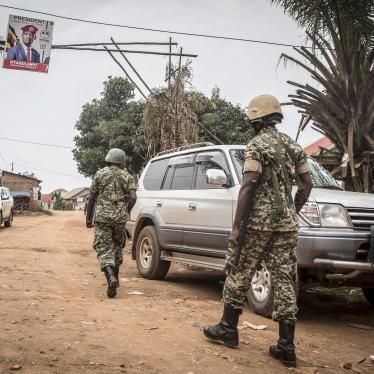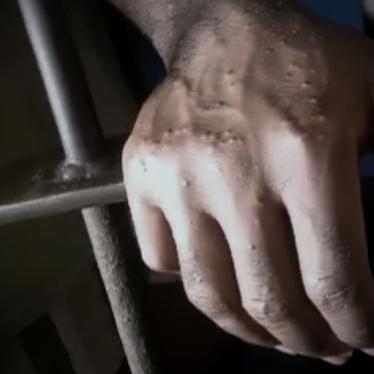Eleanor Roosevelt famously said that human rights begin in "small places"- places not found on any map. Choma prison, about 300km from Zambia's capital of Lusaka, may be on the map, but it is not easy to find. Once found, it's harder still to find respect for human rights.
In many African countries, prison conditions are awful, and have been for years. The prisons are overcrowded. Prisoners often get little food. HIV and TB are widespread, and healthcare is inadequate. Large numbers of pre-trial detainees, often held for long periods awaiting trial, mix with the general prison population, and frequently have inadequate legal counsel.
Increasingly, though, overcrowded African prisons are gaining attention as dangerous incubators of a deadly infectious disease: multi-drug-resistant tuberculosis (MDR-TB). Drug-resistant TB is exactly what it sounds like - a difficult-to-treat and deadly strain of tuberculosis that has emerged because of poor management of TB and inadequate infection control. The World Health Organisation estimates that there were 440,000 new cases of MDR-TB in 2008 alone.
Over the past several months, Human Rights Watch and two local partner organisations have been researching prison health conditions in Zambia, visiting six prisons and interviewing almost 250 prisoners. Prisoners told us how they were packed together in their cells, forced to sleep seated or in shifts. They told us of being so hungry that food has become a commodity traded for sex. They told us of the filthy water they are forced to drink and the rags they are forced to wear. Prisoners also told us of the punishments they face for infractions of prison rules: they are placed naked into a small, dark cell and forced to stand in water, mixed with their own urine and faeces, for days.
Suspected TB prevalence rates in Zambian prisons are very high, but testing is minimal. At one of the prisons we visited, none of the prisoners had been tested for TB. The TB isolation cells designed to house the ill and protect others from infection - at the few prisons where they exist - are essentially dark, airless death traps.
Since TB isolation cells in Zambian prisons are slightly less crowded than standard cells, some inmates who have completed treatment choose to remain there. This can lead to immediate reinfection. One doctor who visits the prisons told us: "Where there are TB patients there is more space, and inmates want to sleep there. You find pregnant women in the cell with TB patients. You may say it's not medically acceptable, but what can you do?"
What can be done? That is the question that all of us who work on human rights face. The answer is, first, to raise an alarm. Conditions in Zambian prisons are not simply deplorable, they also violate international human rights law. Zambia is a party to the major international human rights treaties, which require its government to ensure basic minimum standards for detainees and medical care at least equivalent to that available in the general population. The Zambian government also has a binding obligation not to expose people to conditions of torture and cruel, inhuman, or degrading treatment - which it currently breaches by exposing prisoners to these conditions.
The second step is to understand that this is everyone's problem. Zambia ranks among the top 10 countries in the world in terms of TB prevalence. More than 60,000 Zambians become newly infected each year. Failing to provide TB screening and treatment to prisoners means not only that prisoners will become infected and may die from TB, but that efforts to control TB in the community will fail, and that drug-sensitive TB will be replaced by deadly drug-resistant TB. "Good prisoner health is good community health" is a well-known maxim among public health experts. Change will only come if Zambians themselves and their political representatives demand it.
More fundamentally, though, governments need to act. There is a desperate need to tackle what is causing this crisis: lack of investment in prisons is one factor, but the structure of the criminal justice system itself needs changing. More than a third of the prisoners packed into Zambian prisons have never been convicted of any crime - some wait more than five years for their cases to be resolved. Reform is urgently needed. Increasing the use of parole and community service and speeding the progress of cases through the criminal justice system are essential to improve the health of all prisoners, and to ensure fairer justice for all.
It should not be necessary to invoke the spectre of drug-resistant TB for the government of Zambia to fulfil its obligations to respect and protect the human rights of prisoners and to ensure that its prisons meet minimum sanitation and health standards. And donor countries should not wait until African prisons reach breaking point before supporting efforts to improve conditions. As a 29-year-old inmate at Choma prison told us, "It is a matter of health, but also of dignity." That is true, but more fundamentally it is a matter of justice and rights.






